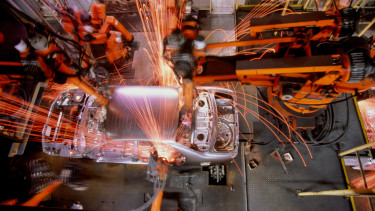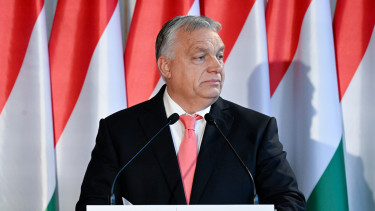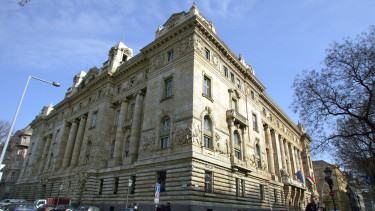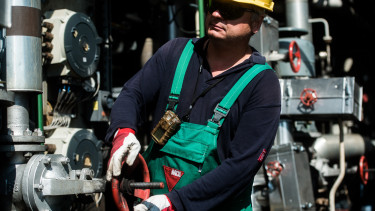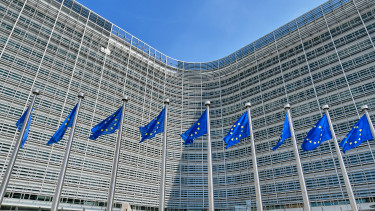Hungary's 4iG takes a huge step forward - Total transformation is coming

4iG has announced a complex overhaul of its corporate structure, which will result in the creation of a holding company and a clear separation of its different business lines, with telecoms infrastructure, for example, becoming a separate entity. How exactly will this be done?
We have announced a transformation programme of historic importance for the future of the Group, which will primarily affect our domestic businesses, but will have a significant impact on the operations of the Group as a whole. The transformation is one of the largest domestic transactions of its kind and will have a positive impact on the 4iG Group's profitability, operational efficiency and competitiveness, as well as on the quality of the retail and business services provided by our companies.
In a simplified view of the process: during the transformation or structural separation, we are splitting all our domestic telecoms companies into commercial activities and infrastructure, then merging our commercial units and doing the same with our infrastructure companies.
At the end of the process, we will have created a commercial and an infrastructure company from our current four telecoms companies in Hungary, and we will continue to operate our IT and systems integration activities in a separate IT company.
The entire group will be managed by an efficiently organised capital market holding company with centralised support functions. The transformation will therefore create a more streamlined, transparent group structure, which will increase the efficiency and effectiveness of the group in all areas. As a result of the structural separation, 4iG will be among the first in Europe to implement the separation of its fixed telecoms infrastructure.
It sounds simple, but transforming a group of 8,000 employees is not something that can be done overnight. How long do you estimate the restructuring process of the group will take?
The implementation phase starts on 15 November, and this will be the most important project in the life of the group over the next two years.
What was the rationale behind the decision to transform, what was the motivation and why is now the right time?
The main driver of the overall transformation programme is shareholder value creation, which we will achieve through improved business results and efficiency. We are creating a new momentum for the Group. Through a series of acquisitions in recent years, we have grown into a convergent infocommunications group in the Central and Eastern European region.
When we started the expansion, we already knew that we didn't want to run these companies in the long-term in the way we bought them. There is a lot of duplication and untapped revenue and cost synergies in our processes, and complex transformation is essential to further exploit these synergies.
We also looked at international examples of structural separation, and studied in depth how others have carried out similar transformations, with what success and what mistakes they have made.
The technical orientations were decided months ago, and since then the details of the strategy and implementation process have been worked out. A significant part of the Group's management has been involved in the preparation of the project. In addition, a good number of external consultants worked on the preparation of the programme under the guidance of Arthur D. Little, one of the leading consultants in the sector.
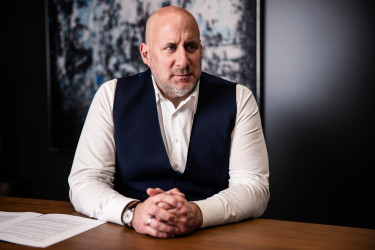
You mentioned that the IT area will also be transferred to a separate company. Which companies will be included in each entity and which will be left out of the integration? By what logic have the latter units not been included in the restructuring?
The transformation is affecting practically the whole Hungarian group, not just telecoms. Separation by segment has a number of advantages. It promotes transparency, so that the performance of subsidiaries organised in centres of competence based on their scope of activities becomes apparent and measurable for shareholders and investors. Companies operating in this way are able to respond more quickly to market challenges and developments, and are also better placed to take advantage of future acquisition opportunities.
Accordingly, in the course of the two-year process ahead, the IT/Systems Integration activity, which currently operates within 4iG Plc, will be transformed into an independent subsidiary. We see a number of growth potentials and spin-off opportunities in this area, which could give an IT systems integrator organised in a stand-alone headquarters even more attention and focus.
IT is also a priority business area for Rheinmetall, a shareholder in the 4iG group. We are building up our IT operations for the Group, which operates in 33 countries around the world, over the next few years, and we also have digitalisation development business opportunities in other industries, such as defence, which are much better supported by a standalone business operation.
The transformation will also affect our technology and aerospace companies, as we will be able to take advantage of the opportunities arising from the global growth of the sector much more effectively with a management structure organised in a stand-alone subsidiary. The separation of mobile and fixed infrastructure will also affect our Western Balkan subsidiaries.
What will be the role of the holding company going forward?
The transformation will also create a streamlined, relatively flat but very strong holding company with support, development and control functions, able to perform these central functions across borders and regardless of the number of countries.
The holding centre will enable the 4iG group to operate in a standardised international way, which will also provide the group with significant savings in a number of areas. For example, a centralised procurement division, supported from the holding company side, which handles purchasing for the whole group, can achieve completely different prices than if this activity were carried out on a subsidiary-by-subsidiary basis.
The new operational structure will allow us to stay close to our subsidiaries, ensuring the efficiency of knowledge transfer and the shortest path for business information in both directions.
We also believe it is important to look not only at the day-to-day operational tasks, but also at our medium-term strategic processes, which take three to five years. We have therefore set up a strategy group within the holding company, with experts not only in corporate management but also in telecommunications and digitalisation. Their job is not to deal with day-to-day business, but to look at the direction in which we should take our commercial strategy, business development, what to do with digitalisation, what to spend on R&D, the direction the world is likely to take, and what we want to do and how we want to respond to these challenges.
Previously, you have mentioned the potential to monetise existing telecoms infrastructure, and now you have decided to undertake a complex transformation of the company. This could open up the possibility of selling the infrastructure either on or off the stock exchange, as is the case in many European sectors. Are there plans to do so?
The most important objective of structural separation and the implementation of the whole transformation process is to be able to exploit the added value of monetising our infrastructure and infrastructure companies.
The capital we have tied up in fixed and mobile infrastructure is a huge asset, and unlocking it will create value that cannot be left untapped. The infrastructure and commercial businesses created by the separation of activities are valued at different multiples in global markets, and preliminary estimates suggest that the separation could result in an increase in goodwill of more than HUF 400 billion, which could further expand the Group's ability to raise funds.
As you have mentioned, it is possible that after the demerger we will either float the infrastructure company on the stock exchange or sell a stake in it over the counter.
In international markets, we have seen more of the latter recently. The final form of how raising capital will also be determined by the strategy of future investors. Whether the final decision is an IPO or a sale, we will retain a controlling majority stake in the company because we do not want to lose control of critical infrastructure.
Whichever alternative we choose, by raising capital from external investors, we are essentially looking to reduce the Group's debt, which can provide a stable financial backing for further regional growth and for further development of our network infrastructure. International expansion will remain a key focus for our Group in the future.
How much revenue do you expect from the sale of infrastructure? Have any estimates been made?
Naturally, we have done the calculations, but it is too early to talk about it, as we are at the beginning of the process. What I can say is that, based on international benchmarks, the magnitude of the capital injection could be in the hundreds of billions of euros, which could consolidate a significant part of our current debt.
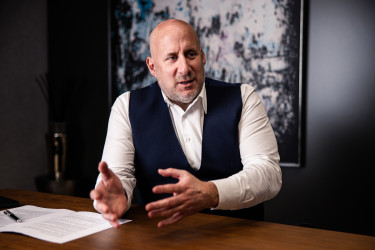
Currently, the enterprise value (EV) is HUF 1,090 billion, and an increase in EV above HUF 400 billion is significant. How have synergies helped to increase firm value so far?
Over the past 18-24 months, we have also taken decisive steps to exploit business and operational synergies between the different subsidiaries of the Group. If we extrapolate this to the enterprise value, using a market benchmark, on a DCF basis, we have achieved an increase of more than HUF 300 billion in terms of one-off and ongoing synergies already realised.
EBITDA from operations increased significantly in each of the companies, but there were also one-off items, such as the sale of our 25% stake in Yettel-CETIN in exchange for a stake in Vodafone, or the sale of the DIGI towers, which provided us with one-off and ongoing synergies, as maintaining the tower network at the current subscriber numbers was unprofitable.
How optimal is the debt level for the company's operations? At what rate can debt levels be reduced in the coming years and how can restructuring help?
Already this year we have made significant progress in reducing debt ratios, as when we closed the acquisitions our net debt to EBITDA ratio was 4.9 times, and by the end of 2023 we expect this ratio to be around 4.3x, thanks to the growth in the Group's business performance, driven in large part by the synergies we have already realised.
If we can keep to the EBITDA growth plan that we have targeted for the next three years, we could quickly get our net debt/EBITDA ratio below a multiple of 4 from organic growth and from exploiting further synergies.
With the implementation of the structural separation and the capital injection by the infrastructure company, the above ratio could be reduced by a factor of 2-3 in terms of EBITDA in 2024/2025.
In which segments do you expect profitability improvements following the transformation?
The whole transformation programme is about getting the most out of the Group. We expect to improve results primarily by exploiting business synergies, both in the corporate and retail areas. Our unique infrastructure will provide a national potential for what has been an isolated sales areas.
In addition to the business synergies, we are of course also expecting savings from efficiency gains in the longer term. In addition to the positive synergies, there are also negative items. We have to make a number of investments in the IT systems that support operations, or because of network consolidation, not to mention the separation of Vodafone's systems from the former parent company, which represent one-off costs of tens of billions of forints.
Opinions are divided on whether the consolidation of domestic telecoms will strengthen or weaken competition. Market share trends and price increases suggest that it has not strengthened. How do you see it?
If competition had not been fierce, we would not have announced an inflation-linked price increase of 15.4% for Vodafone for 2024 instead of the 22% that would otherwise have applied, not to mention that we will raise prices only from 1 March. This is precisely because we want to compete and retain our customers and attract new ones.
In addition, telecoms companies are also facing strong competition to upgrade their networks. Like our large European peers, we are taking structural separation steps in part to attract investors to our future infrastructure company, which will free up significant capital.
But this is an important step not only because of debt reduction, but also because the future development of networks to meet changing demands will cost huge sums of money, for which the infrastructure company, supported by investors, provides a stable backing. This will enable us to provide our customers with high-quality services in the long term. This is what competition will be all about in the future.
Next year, domestic telecoms companies will no longer have to pay the utility tax, and from 2025 they will no longer have to pay a telecoms surcharge. The main surprise was the first announcement, with many believing that the government has become more conciliatory towards the sector because of the strengthening of 4iG. How do you see it? How much are we talking about per year for the 4iG Group in relation to the two taxes?
The two taxes represent an extra burden for all telecoms companies operating in Hungary, which, together with external economic effects, has contributed to the slowdown in digitalisation and network development. The abolition of the taxes is of course beneficial for us, but the government's announcement on the abolition of the taxes was not the first one made in the context of the partnership agreement with 4iG. By phasing out the taxes, the 4iG Group will be able to spend more than HUF 15 billion more on its investments each year.
The government expects that by saving on the special tax, telecoms companies will spend on investment. What can be expected in terms of investment at 4iG?
4iG has committed to invest HUF 150 billion over the next five years in an agreement with the government. This means that we will make gigabit-capable networks available in our current service area and in an additional 1.1 million households using fixed or high-capacity 5G wireless technologies.
We will also make broadband internet and high-definition TV services available to nearly 100 % of the population. In Budapest and its agglomeration, in the county seats and along the main transport routes, we will build a high-capacity 5G network, with at least 1000 base stations deploying the latest 5G technology available today.
We want a paradigm shift in the development of 5G networks in Hungary, so we have committed in the agreement to build 3.6 GHz base stations, which will provide a true 5G network for our subscribers.
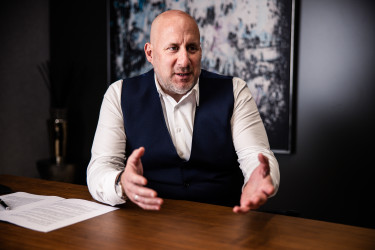
Cover photo: Portfolio



